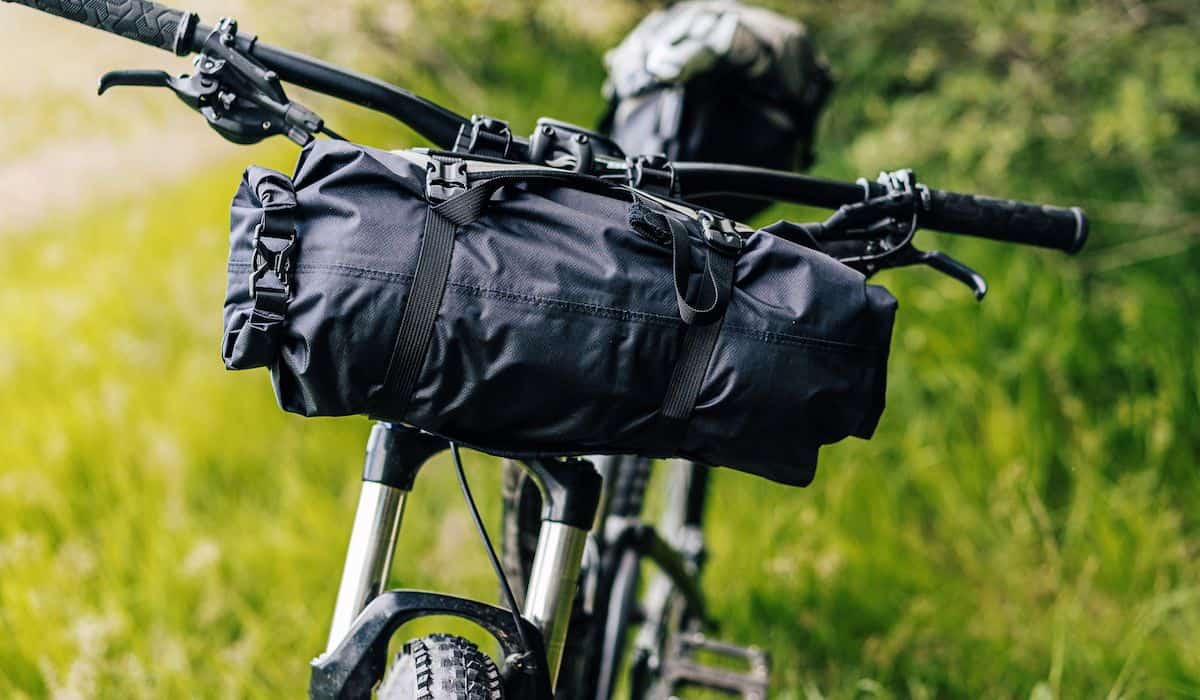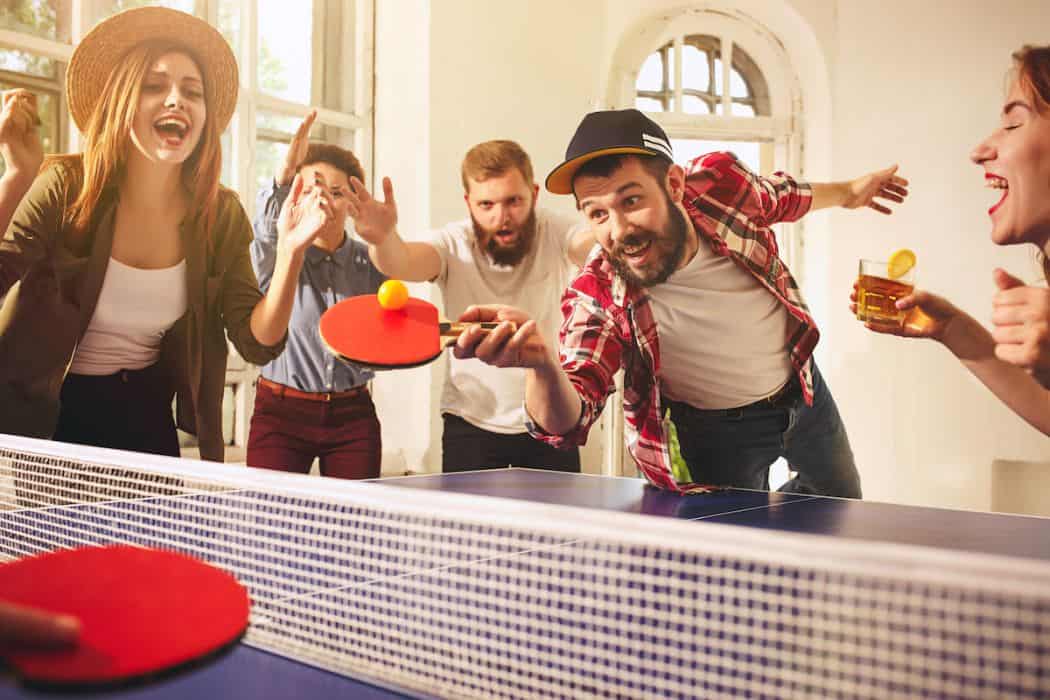If you’re thinking of taking a bikepacking trip, you’re in for an adventure. Just make sure that you’re prepared, with the proper clothing, toiletries, food, and other gear. This way, you can bikepack in safety and comfort.
Many people head off on their first bikepacking adventure only to learn the hard way by forgetting a vital piece of equipment.
Let’s not make that mistake ( I did in the beginning )
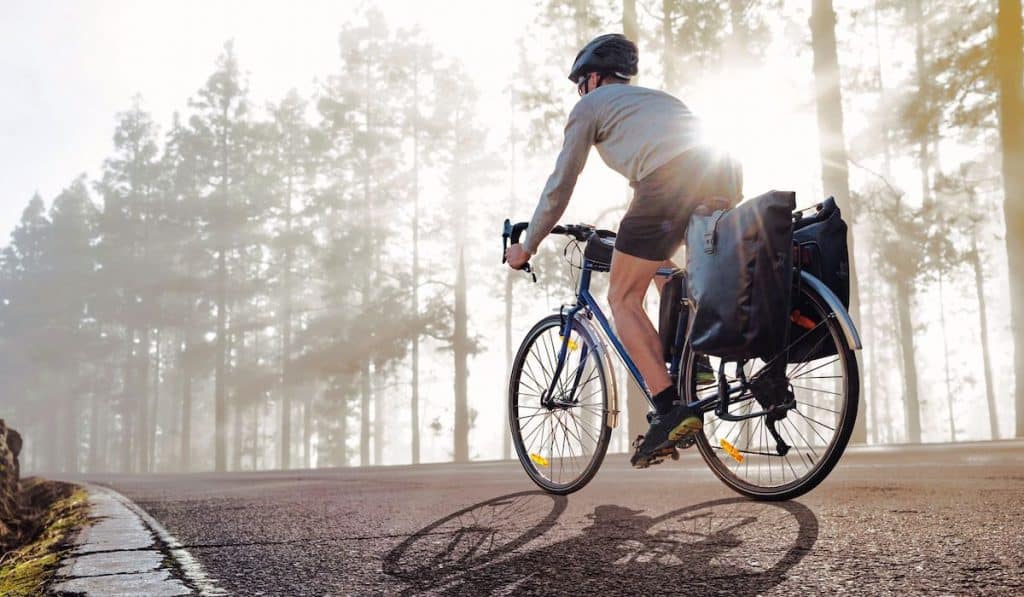
What is Bikepacking?
Bikepacking is backpacking on your bike, and you can cover a lot more distance than you would on foot. It’s ideal for the biking enthusiast any people who love to travel. Just be aware, on your bike, you’ll need to pack lighter than ever!
So, what bikepacking gear do you need to get started?
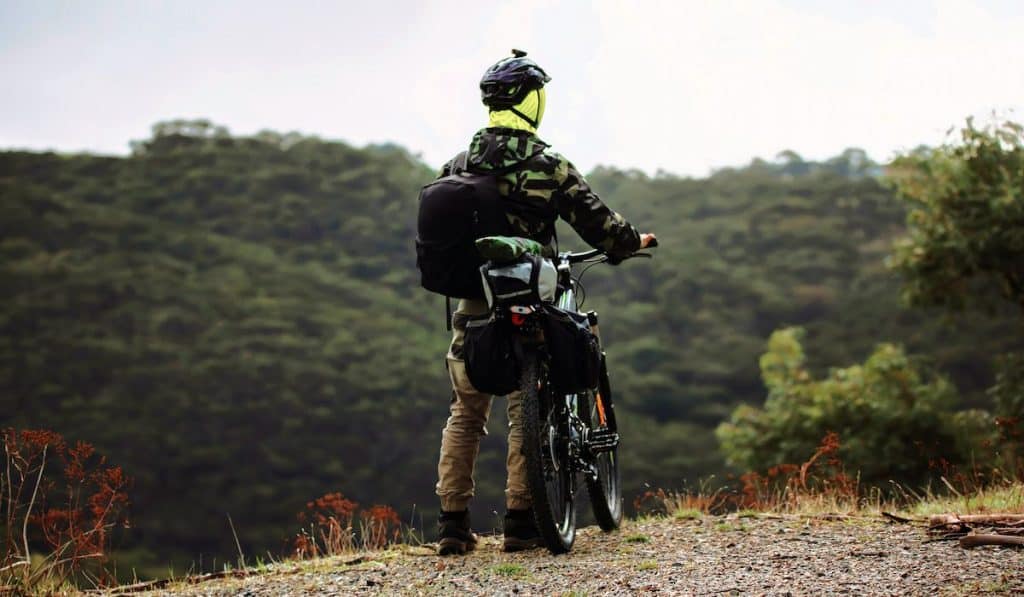
What Bikepacking Gear Do You Need?
Along with a suitable, all-terrain bike, you’ll need a proper helmet and a suitable backpack (and any other bike bags you intend to bring). You’ll also need plenty of biking and camping gear!
Sleeping Gear
- Sleeping bag. Make sure to get a sleeping bag suitable for where you will be traveling (and anywhere in-between). It should be lightweight, yet highly-insulated, in case of low temperatures, etc.
- Sleeping pad. If you bring a sleeping bag on your bikepacking trip, you back will thank you. Just make sure it’s appropriately lightweight and compact.
- Tent, tarp, or hammock. When it comes time to set up camp, you’re sure to want a tent or tarp (and maybe a hammock, too) for shelter!
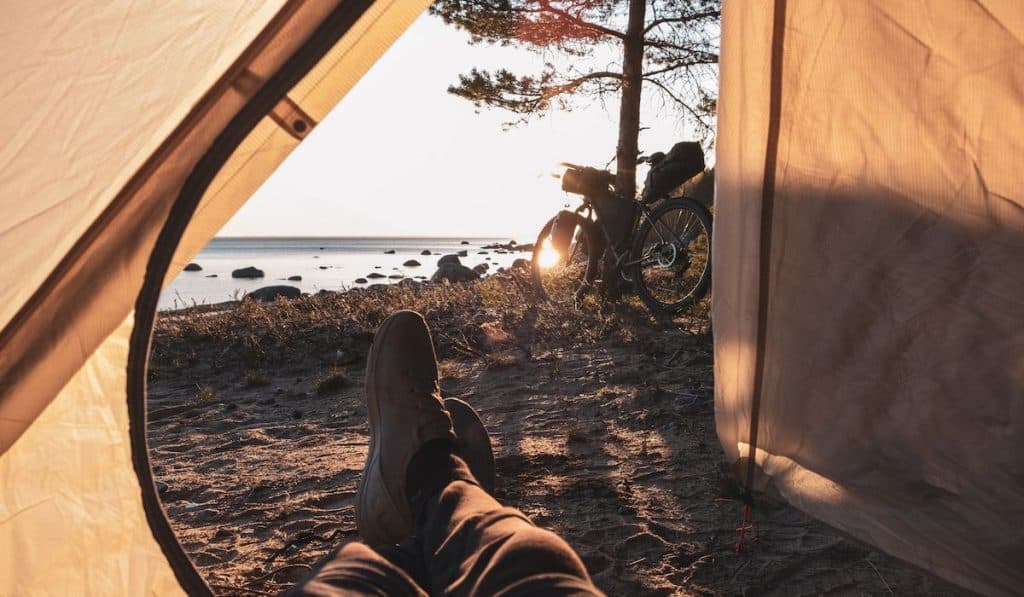
Cooking Gear
- Camp stove. You’ll want to bring along a camp stove if you like your food hot. You can also boil water for hot cocoa or coffee, oatmeal, etc.
- Fuel. A camp stove will need sufficient fuel; usually butane, propane, or some mix. Make sure to bring enough to last.
- Lighters (3). It’s advisable to bring a few lighters, in case you lose one or one runs out of fuel. These are invaluable when camping and on the trail.
- Spoon and fork or spork. To save on space, bring just one set of silverware, or just a spork.
- Small cooking pot. To heat food or provide boiling water for hot drinks and meals, you’ll need a small cooking pot.
Food and Water
- Water filter (and/or water purification tablets). On the road, you can fill up your water bottles at gas stations most of the time, but it’s still important to have back up. If you’re bikepacking through nature, tap water may simply not be available. It’s always wise to have your own water filter (water purification tablets can also work). We use the Sawyer Mini water filter . It’s effective, lightweight, and inexpensive.
- Lightweight, non-perishable foods. Some of the best lightweight and non-perishable backpacking foods are instant oatmeal, pancake mix, instant mashed potatoes, cheese, crackers, and more!
- Drinking water. Don’t forget a big water bottle, or better yet, a small water backpack. Bring as much water as you can, but don’t overburden yourself.
Toiletries
- Pocketknife. A pocketknife is a versatile tool that can be used to serve food, forage or create kindling. It’s also good for self-defense if you know how to use it.
- Sunscreen. If you’re going backpacking, you’ll definitely need some sunblock. Pick one that’s at least SPF 50 or SPF 100 (these should block 98-99% of unfriendly UV rays).
- Lip balm. If you’re a biking hobbyist, you’re sure to have learned the importance of lip balm. With all of the wind passing by, your lips can get really dry. Keep an effective lip-balm in an easily-accessible spot in your pack!

- Toilet paper. Toilet paper is a necessity that you certainly won’t want to forget on your bike trek.
- Environmentally-friendly soap bar. If you’re a stickler for hygiene, you can bring along an environmentally-friendly soap bar (or two). You can use this to scrub yourself clean under a sunshower or in a waterfall or river without harming the environment. We use Transcentuals organic soap .
- Sunshower (optional). Have you ever heard of a sunshower? For a bikepacker, this can be a real game-changer. It is a portable, empty, bag-like container with a shower-head. You can fill it up with water and heat it in the sun, and then have yourself a nice, warm shower!
- ALL NATURAL TRAIL SOAP – Great for camping, hiking and all outdoors activities. Comes with a thick plastic travel case, that is waterproof and has a locking lid. Bar soap and shampoo eliminates concerns over liquid soaps spilling in your gear. Plus, our trail soap is safe for use on both your hair and body so you only need one container.
- ALL NATURAL “FOREST FLOOR” SCENT – 100% Natural essential oils are used to give an all natural scent to trail soap. No perfumes our chemical scents. You will actually smell the woods when you smell this soap.
- ENVIRONMENTALLY FRIENDLY INGREDIENTS – With ingredients such as grapeseed oil, hemp oil and coconut oil this soap is environmentally friendly and biodegradable. We use USA made, rain forest friendly palm oil.
Clothing
Everyone has a preferred way to dress while they bike, whether it’s the standard biking attire or other exercise wear. Along with your chosen outfits, you’ll also need:
- Raincoat. If there’s anything to remember as a biker, it’s that weather is very changeable. This means that rain – or even snow – can come seemingly out of nowhere. Be prepared for any eventuality with an easily-accessible raincoat (there are plenty available that are specially designed for bikers).
- Sweater. It’s easy to stay warm when you’re biking at a brisk pace. You’ll need something to wear when you stop for the day, however. Once you’ve stopped, you’ll start to cool off. At night, it will get even colder. You might be sweating during the day, but at least some nights, you’ll be grateful to have a sweater!
- Bike shorts. What’s a biker without bike shorts, after all? (Or the equivalent).
- Sunglasses. There are times of day when the sun will be directly in your eyes – and that’s when sunglasses are sure to be a lifesaver!
- Bike gloves. You can use bike gloves to keep your grip in case your get sweaty, keep your hands warm, provide protection in case of a crash or fall, etc.
- Winter hat. In chilly weather or cold nights, you may find yourself in need of a warm, cozy winter hat.
- Coat. You’re unlikely to feel the need to bike in a coat. It’s much more likely you’ll need the coat later on, however, to keep you warm and comfortable during cold nights and chilly weather!
- PJs/loungewear. Once camp is set up, you’ll want some PJs or loungewear to change into, so you can rest in comfort.
Bike Repair Kit
- Tire pump. You’ll need a tire pump, in case of an all-too-common flat.
- Spare tire. Sometimes, tires are damaged beyond repair. A spare tire can save the day, and get you back on the road.
- Patch kit. Before replacing a tire, you may wish to try a patch kit. This can potentially be used to cover holes and tears and make your tires last longer. Read our guide here.
- Tire levers. To remove a flat tire, you’ll need to pack a tire lever!
First-Aid Kit
- Moleskin. Moleskin can save you a lot of stinging pain from blisters, providing a cushion that offers protection and relief.
- Bandages. In case of injury, you will want wraps for your ankles or knees, gauze, Band-Aids, medical tape, antibacterial cream, etc.
- Over-the-counter medication for pain relief. If your muscles get too sore, or a headache starts to brew, biking may not seem like so much fun anymore. Over-the-counter pain medication, such as Aspirin or Ibuprofen can offer some invaluable, morale-boosting pain relief.
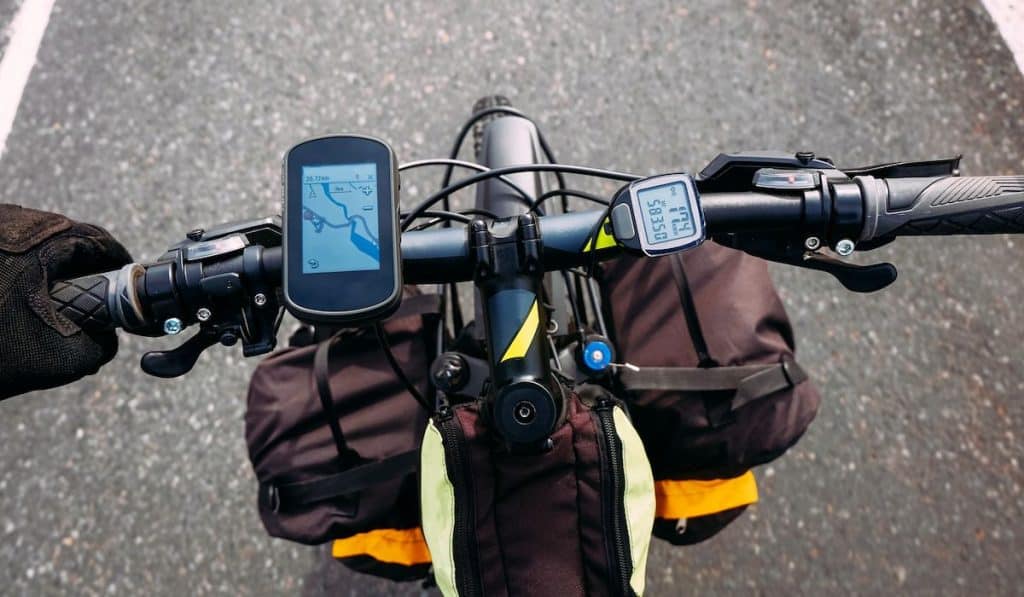
Navigation
- Map. Even if you have GPS, it’s good to have a backup map. This will keep you on-course even if your phone happens to die, or your data runs out.
- Compass. A compass can always come in handy in case you get lost. This can sometimes happen on mountain paths and bike trails, or in the midst of an unfamiliar city.
- GPS. If you’re in range of a signal, then you can navigate with ease using your phone or tablet’s GPS.
Misc
- Cellphone. You’ll definitely want to bring your cellphone bike packing, as it’s an invaluable source of GPS. You can also keep in contact with friends and family while you are out and about. In case of an emergency, you can use your cell to call 911.
- Pepper spray. If you’re backpacking through wild, natural areas, you may feel safer with some pepper spray on-hand. This can deter wildcats, wolves, and bears if you use it properly (follow the instructions on the package).
- Towel. If you get wet in a deluge or decide to rinse off in a sunshower or river, you’ll definitely want a towel to dry off with after!
So, there you have it: a list of the most important bikepacking gear. Is there anything missing from your pack?

